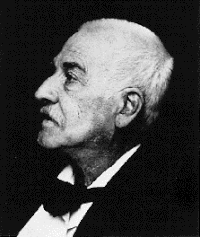Jacob Burckhardt
| Jacob Burckhardt | |
|---|---|

Jacob Burckhardt in 1892
|
|
| Born |
May 25, 1818 Basel, Switzerland |
| Died | August 8, 1897 (aged 79) Basel, Switzerland |
| Nationality | Swiss |
| Fields |
History of art Cultural history |
| Institutions |
University of Basel Federal Polytechnic School |
| Alma mater | University of Bonn |
| Known for | The Civilization of the Renaissance in Italy (Die Cultur der Renaissance in Italien; 1860) |
Carl Jacob Christoph Burckhardt (May 25, 1818 – August 8, 1897) was a Swiss historian of art and culture and an influential figure in the historiography of both fields. He is known as one of the major progenitors of cultural history.Sigfried Giedion described Burckhardt's achievement in the following terms: "The great discoverer of the age of the Renaissance, he first showed how a period should be treated in its entirety, with regard not only for its painting, sculpture and architecture, but for the social institutions of its daily life as well." Burckhardt's best known work is The Civilization of the Renaissance in Italy (1860).
The son of a Protestant clergyman, Burckhardt was born and died in Basel, where he studied theology in the hope of taking holy orders; however, under the influence of Wilhelm Martin Leberecht de Wette, he chose not to become a clergyman. He finished his degree in 1839 and went to the University of Berlin to study history, especially art history, then a new field. At Berlin, he attended lectures by Leopold von Ranke, the founder of history as a respectable academic discipline based on sources and records rather than personal opinions. He spent part of 1841 at the University of Bonn, studying under the art historian Franz Theodor Kugler, to whom he dedicated his first book, Die Kunstwerke der belgischen Städte (1842). He taught at the University of Basel from 1843 to 1855, then at the Federal Polytechnic School. In 1858, he returned to Basel to assume the professorship he held until his 1893 retirement. He started to teach only art history in 1886. He twice declined offers of professorial chairs at German universities, at the University of Tübingen in 1867 and Ranke's chair at the University of Berlin in 1872.
...
Wikipedia
